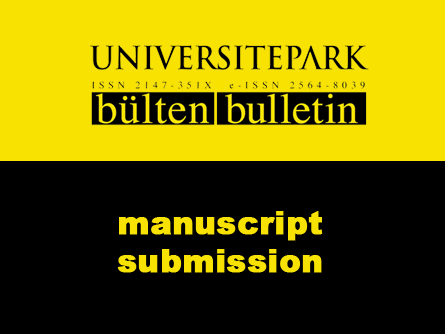Needs Analysis of Problem-Based Learning Textbook Development for Environmental Courses
pp. 134-140 | Published Online: December 2019 | DOI: 10.22521/unibulletin.2019.82.3
Ahmad Muhlisin and Setiyo Prajoko
![]() Full text PDF |
1942 |
1805
Full text PDF |
1942 |
1805
Abstract
Learning resources in the form of textbooks and learning processes are a determinant factor of learning success. The objective of this study is to describe the learning resources available as forms of learning support, to understand the level of learning achievement of environmental material and the percentage of student problem-solving indicators. Survey research method was employed, using instruments in the form of a questionnaire based on respondents’ level of understanding and certain problem-solving indicators. The study subjects consisted of 77 Natural Sciences undergraduate students. Data analysis used quantitative descriptive methods. The conclusions show that the learning resources were supported in the form of reference books, but the semester learning plans for environmental subjects did not yet exist and that environmental subject textbooks were not yet available. The percentage of students’ understanding of learning outcomes or learning objectives in the environmental material was still dominated by the criteria and a 45% lack of understanding. Problem-solving indicators on problem identification aspects dominant at 55%. Aspects identify various solutions that are still low at 25% for identifying solutions, and 20% for skills to maintain solutions.
Keywords: Textbook, problem-based, environment
ReferencesAnazifa, R., & Hadi, R. (2016, August 27). Pendidikan Lingkungan Hidup Melalui Pembelajaran Berbasis Proyek (Project-Based Learning) dalam Pembelajaran Biologi. Paper presented at Prosiding Symbion (Symposium on Biology Education), Prodi Pendidikan Biologi, FKIP, Universitas Ahmad Dahlan.
Aring, M. (2015). ASEAN Economic Community 2015: Enhancing Competitiveness and Employability through Skill Development. ILO Regional Office for Asia and the Pacific. ILO Asia-Pacific working paper series, ISSN: 2227-4405. Bangkok: ILO.
Atmojo, S. (2013). Penerapaan Model Pembelajaran Berbasis Masalah dalam Peningkatan Hasil Belajar Pengelolaan Lingkungan. Jurnal Kependidikan, 43(2), 134-143.
Cahyaningrum, W., Mustofa, M., & Sugiarto, A. (2015). Pengaruh Model Pembelajaran Berbasis Masalah dan Students Facilitator And Explaining Terhadap Pengetahuan Lingkungan Hidup pada Siswa Kelas VII SMP Negeri 1 Jatinom Tahun Pelajaran 2013/2014. Geoedukasi, 4(2), 24-41.
Cullen, T., & Jackson, C. (2018). Problem-Based Learning in the Life Science Classroom, K–12. Interdisciplinary Journal of Problem-Based Learning, 12(1), 200-205.
Djuandi, D. (2016). Pengaruh Pembelajaran Berbasis Masalah terhadap Sikap Siswa pada Lingkungan (Studi Eksperimen Quasi pada Mata Pelajaran Geografi di SMA Negeri 1 Purwadadi). Jurnal Pendidikan Geografi, 16(1), 24-33.
Kumar, R., & Refaei, B. (2017). Problem-Based Learning Pedagogy Fosters Students’ Critical Tinking About Writing. Interdisciplinary Journal of Problem-Based Learning, 11(2), Art. 1.
LKPP-UNHAS. (2015). Bahan Ajar, Buku Ajar, dan Panduan Praktik. Makasar: LKPP-UNHAS.
Major, T., & Mulvihill, T. M. (2018). Problem-Based Learning Pedagogies in Teacher Education: The Case of Botswana. Interdisciplinary Journal of Problem-Based Learning, 12(1), Art. 1.
Merrit, J., Lee, M., Rillero, P., & Kinach, B. M. (2017). Problem-Based Learning in K–8 Mathematics and Science Education: A Literature Review. Interdisciplinary Journal of Problem-Based Learning, 11(2), Art. 3.
Millah, E. S., Budipramana, L. S., & Isnawati. (2012). Pengembangan Buku Ajar Materi Bioteknologi di Kelas XII SMA IPIEMS Surabaya Berorientasi Sains, Teknologi, Lingkungan, dan Masyarakat (SETS). BioEdu, 1(1), 19-24.
Muhlisin, A. (2012). Pengembangan Perangkat Pembelajaran IPA Terpadu Berbasis Contextual Teaching And learning (CTL) dengan Model Pembelajaran Kooperatif Tipe Student Achievement Division (STAD) Tema Polusi Udara. Journal of Educational Research and Evaluation, 1(2), 139-145.
Muhlisin, A. (2017, November 04). Inovasi Model Pembelajaran RMS untuk Meningkatkan Kecakapan Abad 21. Paper presented at Prosiding Seminar Nasional Hayati V 2017. Diseminarkan pada Tanggal: Program Studi Pendidikan Biologi Fakultas Keguruan Dan Ilmu Pendidikan Universitas Nusantara PGRI Kediri.
Muhlisin, A., Susilo, H., Amin, M., & Rohman, F. (2016). Improving Critical Thinking Skills of College Students Through RMS Model for Learning Basic Concepts in Science. Asia Pacific Forum on Science Learning and Teaching, 17(1), Art. 12.
Putri, A. E., Misdalina, & Oktavia, M. (2018). Pengembangan Bahan Ajar Materi Lingkungan Hidup Kelas XI menggunakan Model Pembelajaran CTL di SMA Negeri 2 Mesuji. Jurnal Swarnabhumi, 3(1), 1-9.
Sinno, N. (2017). Best Practices in Problem-Based Learning. Toronto, Canada: Ryerson University. Retrieved from https://www.ryerson.ca/content/dam/lt/resources/handouts/Problem_Based_Learning.pdf.
- , S. (2012). Pengaruh Pembelajaran Berbasis Masalah dan Kecerdasan Naturalis Terhadap Kemampuan Siswa dalam Memecahkan Masalah Lingkungan Hidup (Studi Eksperimen Di SMPN 1 Mataram NTB). Jurnal Pendidikan Lingkungan dan Pembangunan Berkelanjutan, 13(1), 1-15.
Supriadi. (2015). Pemanfaatan Sumber Belajar dalam Proses Pembelajaran. Lantanida Journal, 3(2), 127-139.
Unver, A., & Arabacioglu, S. (2011). Overviews on Inquiry Based and Problem Based Learning Methods. Western Anatolia Journal of Educational Sciences (WAJES), Special Issue: Selected papers presented at WCNTSE, 303-310.
Widianingsih, W., Karyanto, Prayitno, B., & Irawati, M. (2017). Pembelajaran Lingkungan melalui Pengembangan Subjek Spesifik Pedagogi Berbasis Problem Based Learning untuk Menguatkan Literasi Lingkungan Siswa Kelas X MIA SMA. Proceeding Biology Education Conference, 14(1), 441-448.
Zubaidah, S. (2018, April, 28). Keterampilan Abad Ke-21: Bagaimana Membelajarkan dan Mengatasinya. Artikel. Paper presented at Disampaikan pada Seminar Nasional dengan Tema “Tantangan Biologi dan Pendidikan Biologi Abad-21” di Pendidikan Biologi FKIP Universitas Islam Riau.
UNIBULLETIN News!
► New issue coming soon! (Volume 13 Issue 1, 2024)
► Call for Papers
UNIBULLETIN is calling for submissions. Authors are invited to submit papers from the all fields of the Education (General) and Social Sciences (General) in the international context. All submissions should be presented only in English.
